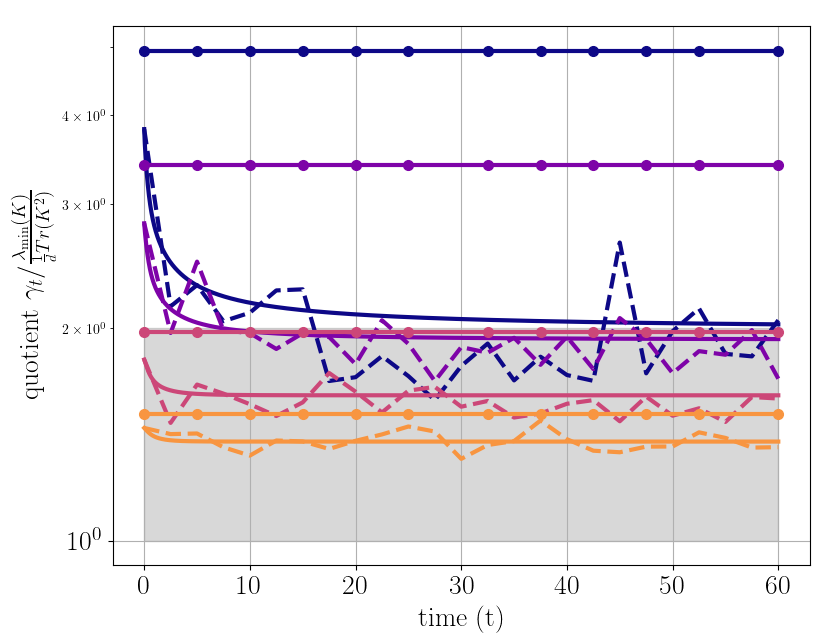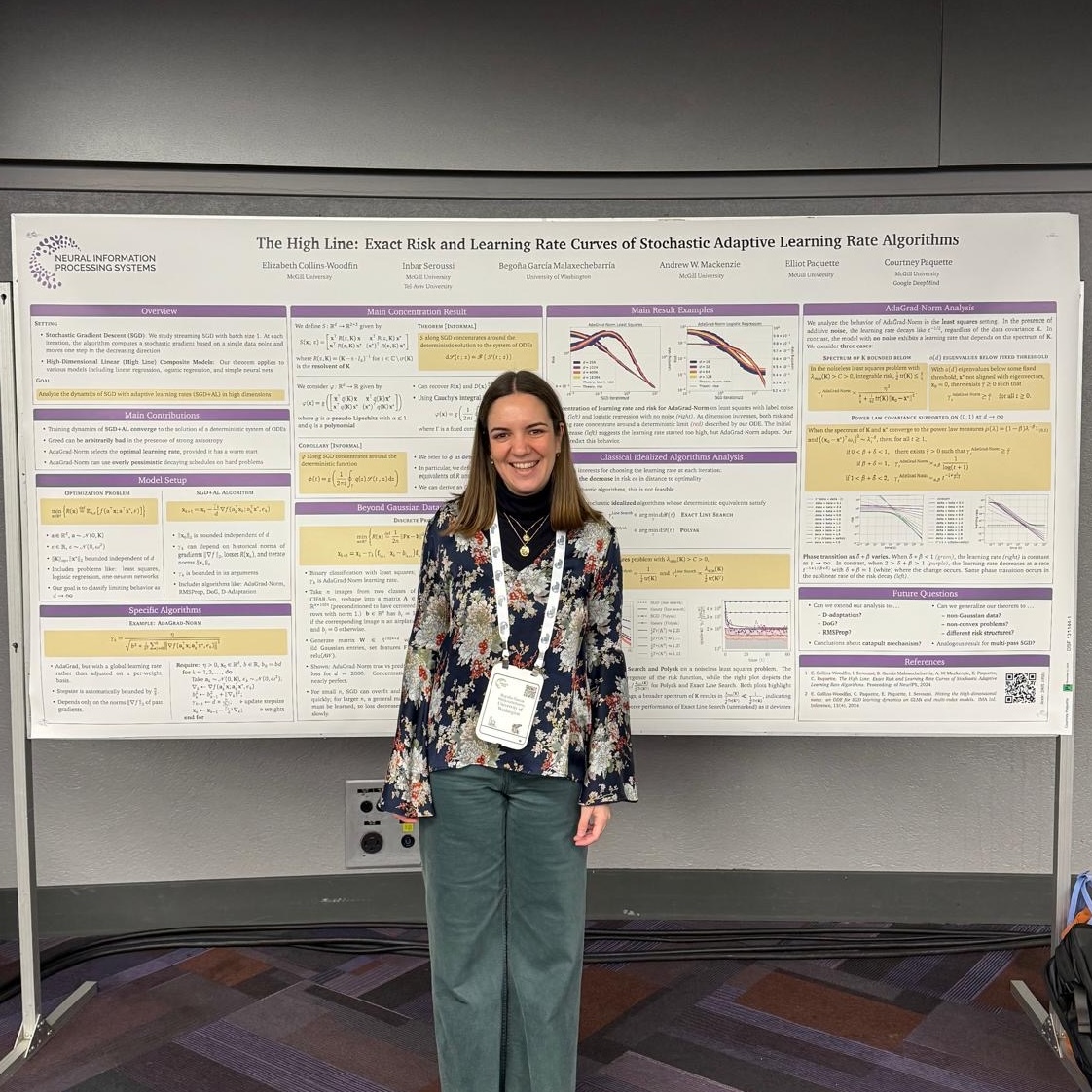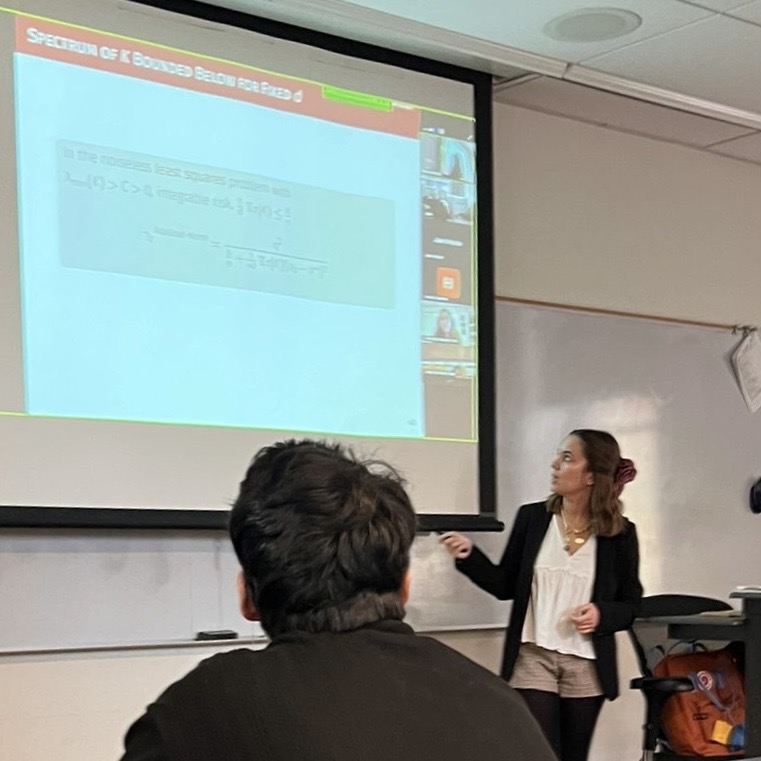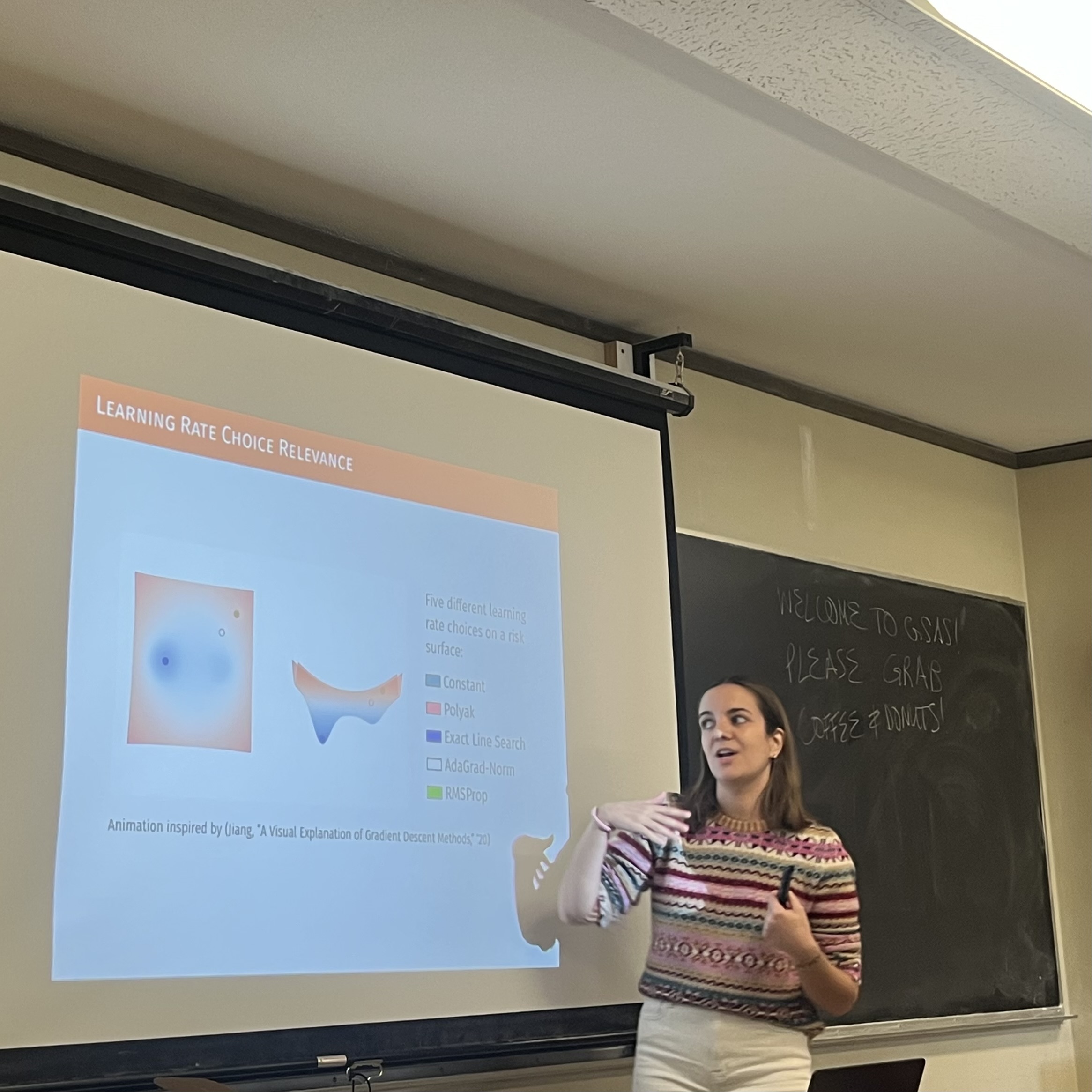PROJECT PORTFOLIO
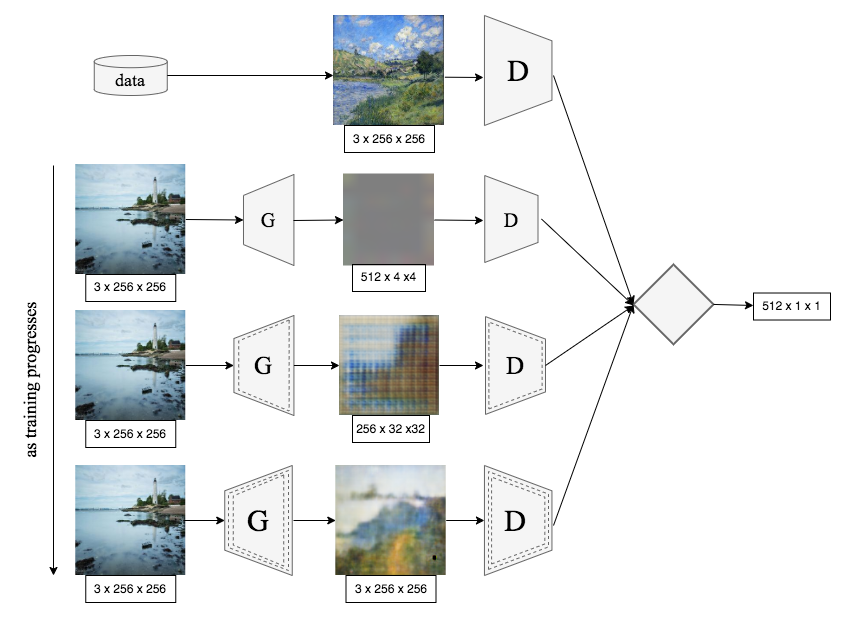
MonetGAN. Painting with Generative Adversarial Networks: Generating Monet-Style Images Using Novel Techniques
Garrett Devereux, Deekshita S. Doli, Begoña García Malaxechebarría
This project was developed as part of the graduate deep learning class at
University of Washington, instructed by Ranjay Krishna and Aditya Kusupati.
Generative Adversarial Networks (GANs) have emerged
as a powerful and versatile tool for generative modeling.
In recent years, they have gained significant popularity in
various research domains, particularly in image generation,
enabling researchers to address challenging problems
by generating realistic samples from complex data distributions.
In the art industry, where tasks often require significant
investments of time, labor, and creativity, there is a
growing need for more efficient approaches that can streamline
subsequent project phases. To this end, we present
MonetGAN, a pioneering framework based on the Least
Squares Deep Convolutional CycleGAN, specifically tailored to
generate images in the distinctive style of 19th-century renowned
painter Claude Monet. After achieving
non-trivial results with our baseline model, we explore the
integration of advanced techniques and architectures such
as ResNet Generators, a Progressive Growth Mechanism,
Differential Augmentation, and Dual-Objective Discriminators.
Through our research, we find that we can achieve
superior results with small changes to gradually build up
a successful model, rather than adding too many varying
complexities all at once. These outcomes underscore the intricacies
involved in the training of GANs, while also opening up promising
avenues for further advancements at the
intersection of art and artificial intelligence.
